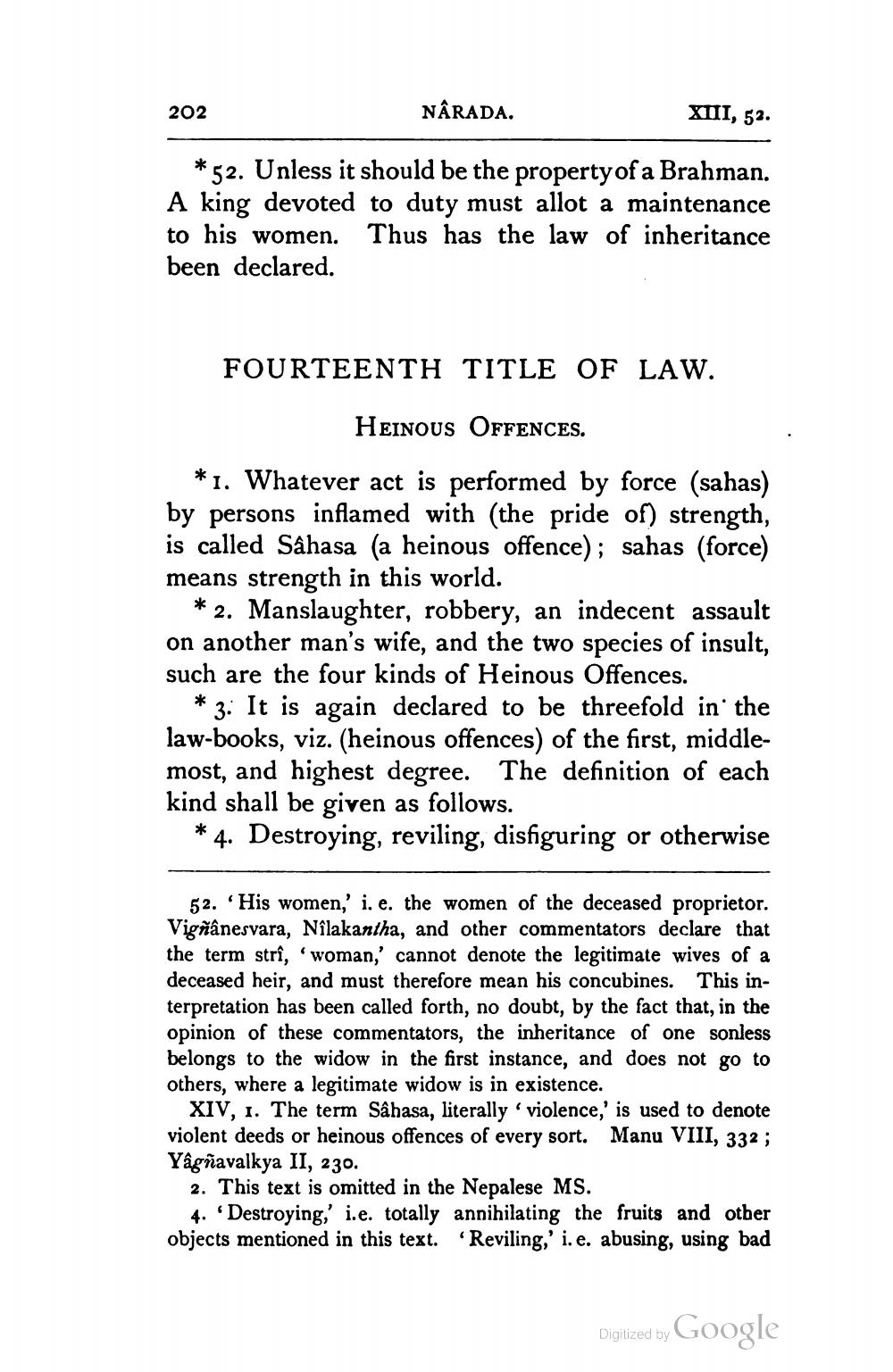________________
202
NÂRADA.
XIII, 52.
*52. Unless it should be the property of a Brahman. A king devoted to duty must allot a maintenance to his women. Thus has the law of inheritance been declared.
FOURTEENTH TITLE OF LAW.
HEINOUS OFFENCES. *1. Whatever act is performed by force (sahas) by persons inflamed with (the pride of) strength, is called Sahasa (a heinous offence); sahas (force) means strength in this world.
* 2. Manslaughter, robbery, an indecent assault on another man's wife, and the two species of insult, such are the four kinds of Heinous Offences.
* 3: It is again declared to be threefold in the law-books, viz. (heinous offences) of the first, middlemost, and highest degree. The definition of each kind shall be given as follows.
* 4. Destroying, reviling, disfiguring or otherwise
52. His women,' i. e. the women of the deceased proprietor. Vigñânesvara, Nîlakantha, and other commentators declare that the term strî, woman,' cannot denote the legitimate wives of a deceased heir, and must therefore mean his concubines. This interpretation has been called forth, no doubt, by the fact that, in the opinion of these commentators, the inheritance of one sonless belongs to the widow in the first instance, and does not go to others, where a legitimate widow is in existence.
XIV, 1. The term Sâhasa, literally violence,' is used to denote violent deeds or heinous offences of every sort. Manu VIII, 332 ; Yâgñavalkya II, 230.
2. This text is omitted in the Nepalese MS.
4. 'Destroying,' i.e. totally annihilating the fruits and other objects mentioned in this text. "Reviling,' i.e. abusing, using bad
Digitized by Google




